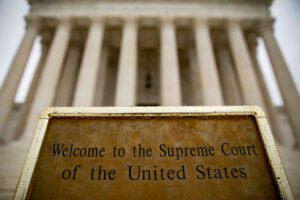Starmer’s Easter Message Highlights Christian Values

(Photo: Faith in Labour)
In a surprising turn of events, Sir Keir Starmer, an atheist married to a Jew, has delivered an Easter message that some find more traditionally Christian than that of King Charles III, the Supreme Governor of the Church of England. This development has sparked discussions about the nature of leadership and faith in contemporary Britain.
King Charles’s Easter message drew criticism for its inclusive references to Judaism and Islam. The King remarked, “The love He showed when he walked the Earth reflected the Jewish ethic of caring for the stranger and those in need, a deep human instinct echoed in Islam and other religious traditions, and in the hearts of all who seek the good of others.” (source)
Conversely, Starmer’s message focused specifically on the Christian community, extending his wishes and acknowledging those persecuted for their faith. He stated, “As Lent comes to an end and we move into the Easter weekend, I want to wish Christians everywhere remembering the death and celebrating the resurrection of Jesus Christ a very happy Easter. The story of Easter is central to the Christian faith: it is a story of hope, redemption and renewal.”
He further added, “This Easter, as churches hold special services across the UK, and gather to celebrate with friends and family, we remember those Christians facing hardship, persecution or conflict around the world who cannot celebrate freely.”
Keir Starmer has faced criticism in the past for his perceived favoritism towards the Muslim community, particularly during the aftermath of the Southport disturbances, where he was labeled “Two-Tier Kier.” This shift in his approach raises questions about his motivations and whether he is attempting to bridge gaps with the nation’s Christian majority.
Some analysts suggest that Starmer may be recognizing the pitfalls of focusing solely on minority groups, understanding that neglecting the majority can lead to social unrest. This contrasts with King Charles’s approach, which appears to embrace a universal inclusivity, reflecting his broader responsibilities as a monarch.
Despite suspicions about King Charles’s personal faith, his Easter message might have stemmed from a sense of duty to all his subjects. Critics argue that he should maintain a focus on the Christian heritage of the nation, given his title as ‘Defender of the Faith.’
Starmer’s message also expressed gratitude for the contributions of Christians inspired by Jesus’s example: “I also want to thank you for the ways in which you follow Christ’s example of love and compassion in serving your communities. Whether through night shelters, youth clubs, toddler groups, family support, care for the elderly or chaplaincy support, and in a multitude of other ways, you demonstrate steadfast commitment and care.”
He concluded with a call for unity and cooperation, stating, “We can all take inspiration from the message of Easter and continue to work together for the flourishing and renewal of our country.”
This article was originally written by www.christiantoday.com






